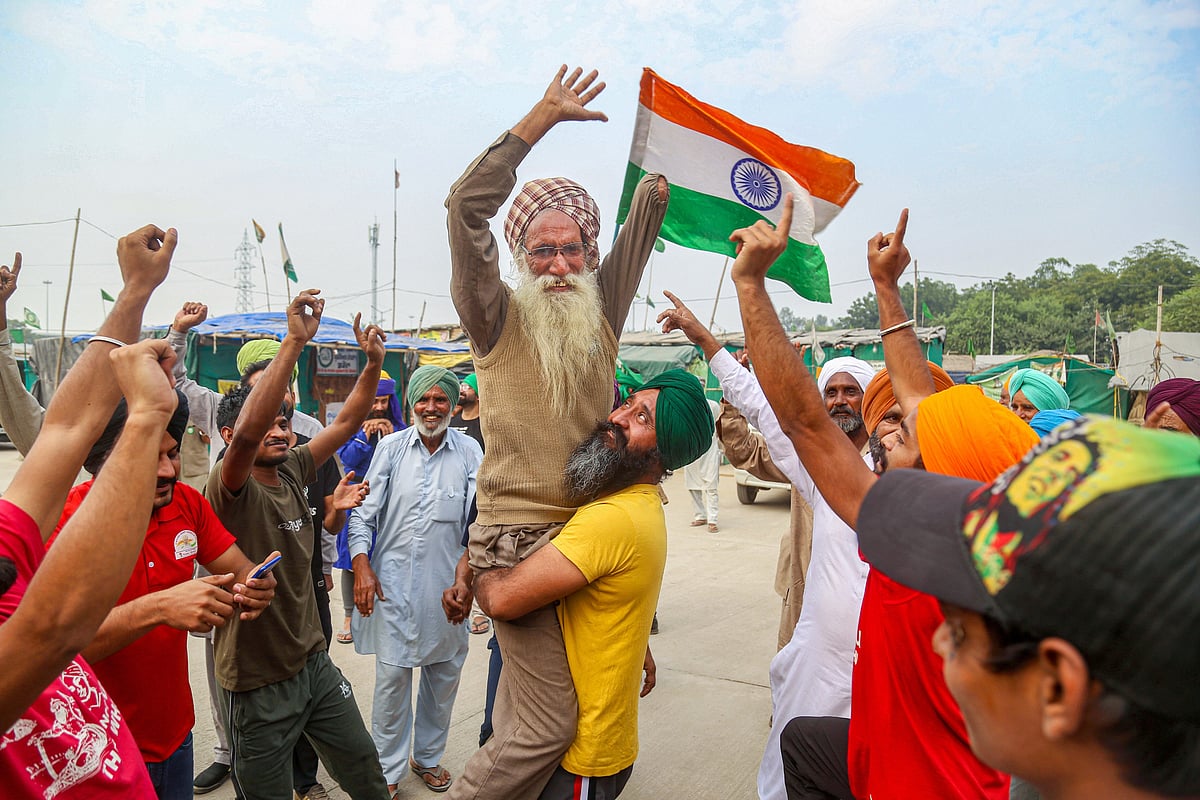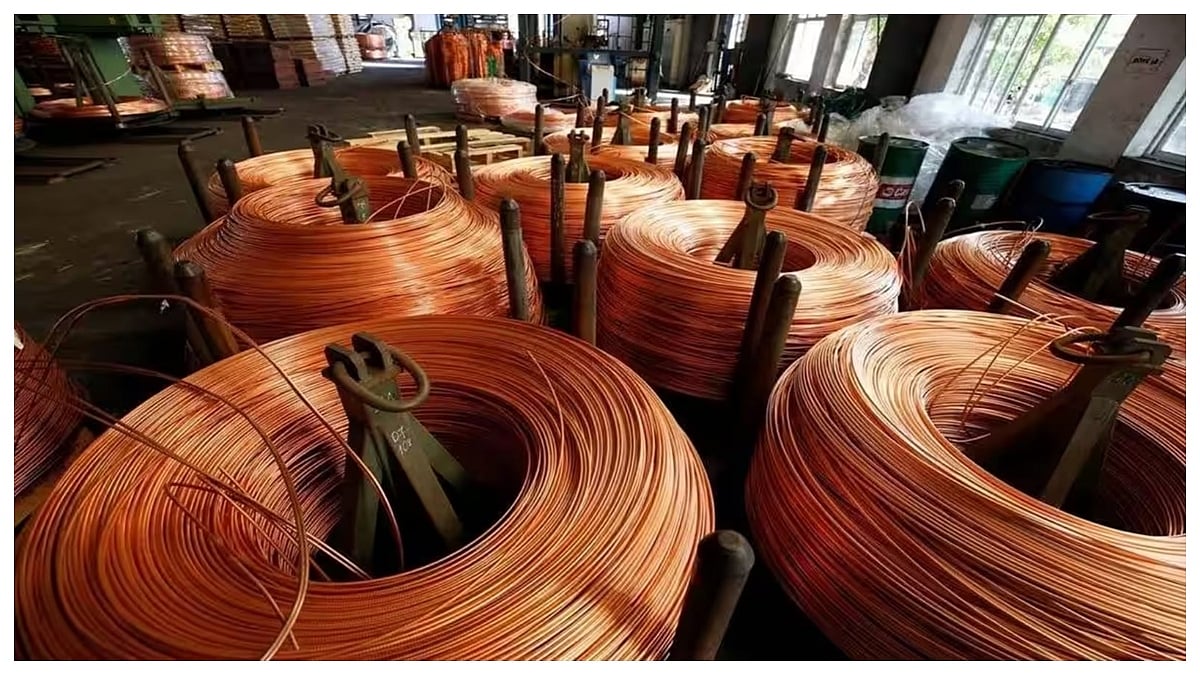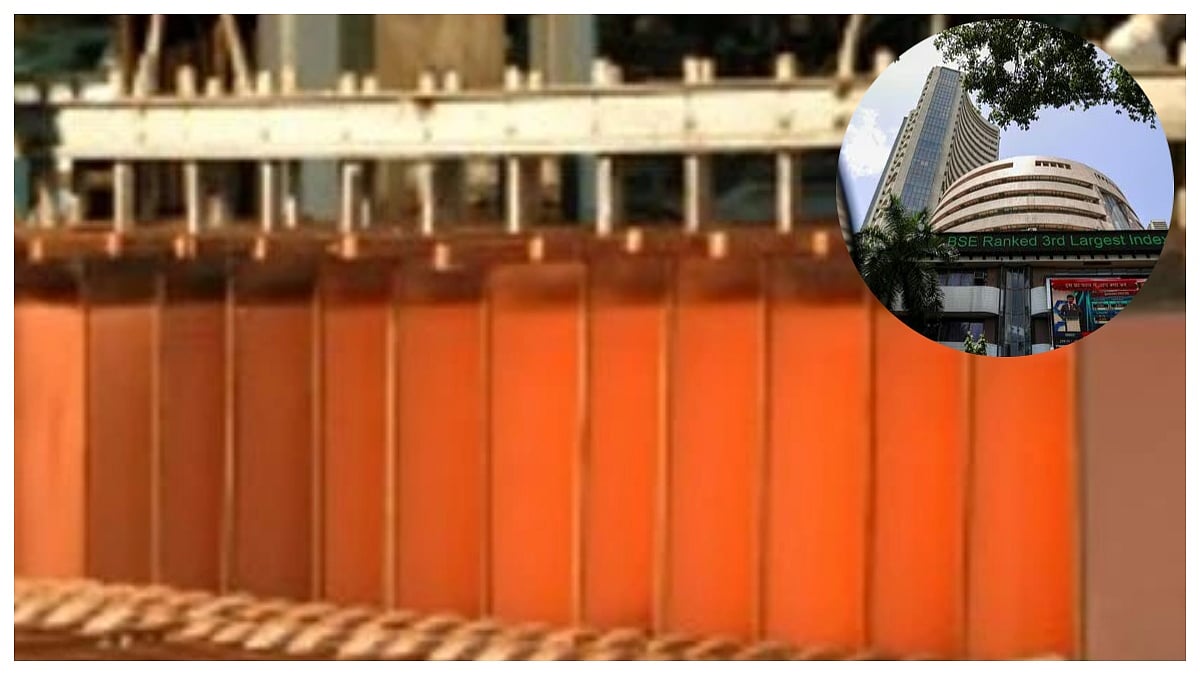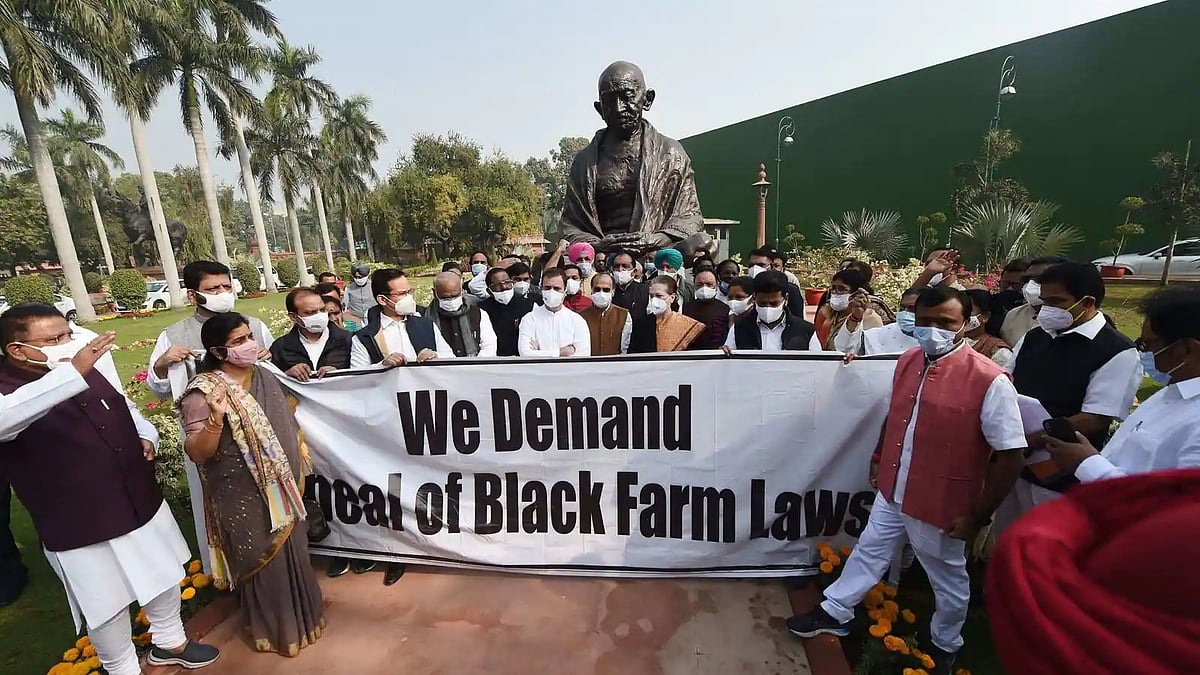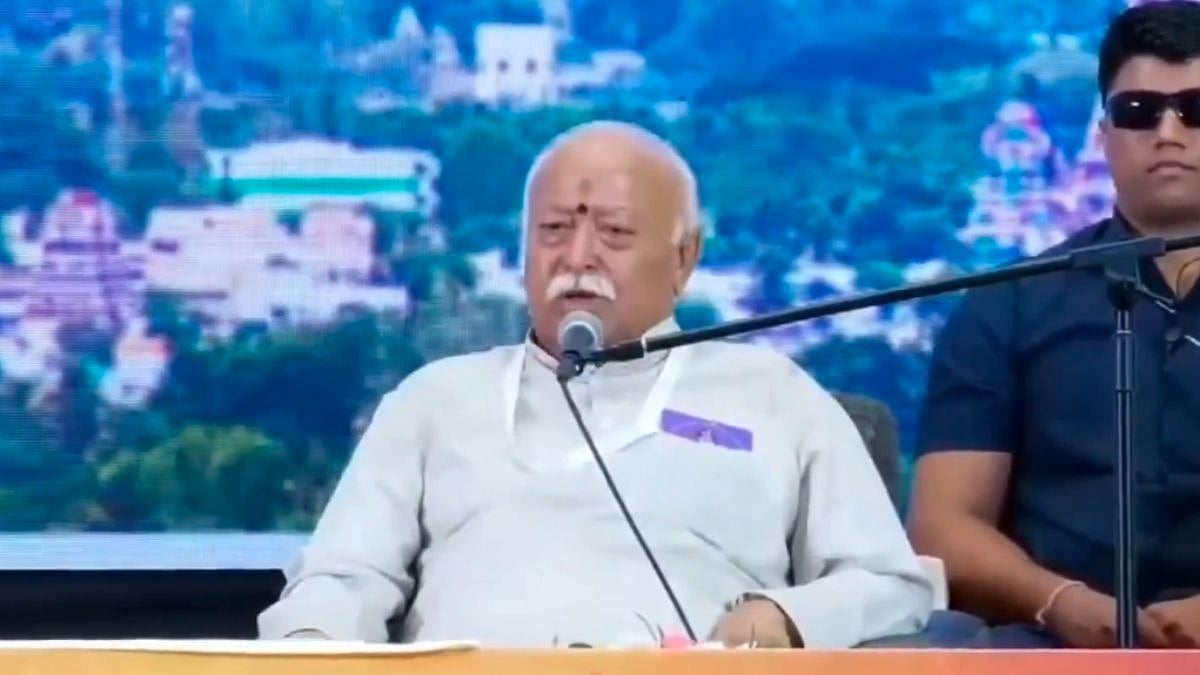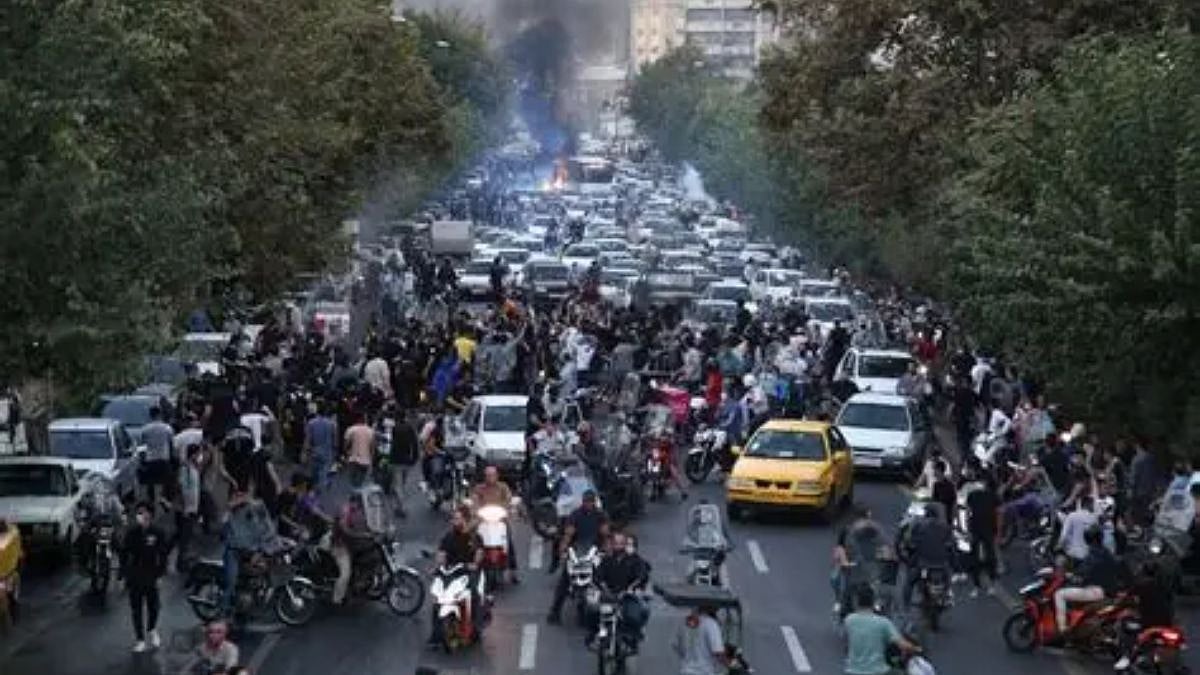More than a year after and several ups and downs during the year-long protests, the agitating farmers called off their protest against the three farm laws on December 9. Hours after receiving a 'singed' letter from the government accepting most of their demands, farmers' unions, under the umbrella body of Samyukta Kisan Morcha (SKM), decided to leave the protesting sites they had occupied on the borders of Delhi. Putting off celebrations to Saturday in deference to the last rites of Chief of Defence Staff General Bipin Rawat and others who died in a chopper crash on Wednesday, SKM leaders said the farmers are 'suspending' their agitation and would meet on January 15 to assess the government's actions on their demands. They added that if the government does not fulfil its promises, they would resume their agitation.
While farmers started packing their belongings on Thursday itself, SKM leaders said thatthe battle has been won, but the war to ensure farmers' rights, especially to ensure MSP as a legal guarantee for all, will continue. The Parliament had annulled the three farm laws at the beginning of the ongoing winter session, but the protesting farmers insisted that the government commit to their various demands in writing as a precondition to call of the protests. The government has done that: it has assured demand on the MSP, withdraw police cases against protestors and compensate the kin of those who died during the agitation, among others.
The farm protests had lingered on for too long for the government to ignore farmers' opposition to the contentious laws, as also their impact on the forthcoming assembly elections. The government insisted that the laws wouldn't be taken back and that they were in the interests of farmers. But the farmers' abhorrence and disapproval of the laws was so strong that they were not ready to settle down for anything less than their complete roll back and a legal guarantee for MSP. The strength of the farmers' united agitation under the leadership of SKM not only put the government on the defensive, but their sheer determination made the government realise that its majority in Parliament and well-meaning intentions were not enough to force the laws on farmers who were convinced that they were 'anti- farmer and pro-corporate'.
With the agitation organically transforming into a mass struggle against the BJP and its governments at the Centre and in several states, the Central government was forced to backtrack and give in to the farmers' demands. Thus, this is not an ordinary victory over an unrelenting government that showed no signs of budging, despite more than 700 farmers' deaths during the year-long protests that also showed no signs of petering out. It is a historic victory of the farmers' struggle in forcing the government to step back and see reason. Probably, the government hoped that the stir would gradually become smaller and weaker before coming to an end on its own. But that was not to be and the government was finally forced to yield to the farm unions' demands.
This potential of the politics of mass struggle as a transformative trigger to disrupt and change the status quo has all the more importance, given thatthe government has been relying too much on its legislative majority to push laws and policy frameworks that are seen in favour of corporations and businesses. Irrespective of the merits and demerits of the farm laws and the demand of legal guarantee for MSP, it would be wrong to see the end of the farm agitation through the binary of victory and defeat. While farmers have indeed won in their struggle to compel the government to stop behaving unreasonably, the government should not see this as a defeat but a lesson in engaging with the farming community to build an environment of consensus for future reforms.
Had the government pursued the process of consultation and consensus with the farming community before passing the laws in a hurry in both Houses of Parliament in September last year, after taking the ordinance route to introduce the laws in June 2020, there wouldn't have been such large-scale farmer mobilisation against the laws that were intended to 'fix' the ailing agriculture sector. The never-say-die attitude and tenacity shown by hundreds of thousands of farmers and their supporters not only challenged the legality of the laws but forced the unyielding government to tamely back away for the first time since it came to power in 2014.
Of course, the upcoming elections, particularly in Uttar Pradesh and Punjab, were the immediate reasons for the Modi government to step back. Additionally, the spiralling price rise, growing unemployment and an already shaky economy attempting to claw its way out of the pandemic slowdown had already put the government on the defensive ahead of the assembly polls. However, nothing can deny the farmers their legitimate credit. Probably, one key reason why the farmers' protest remained alive for so long and was highly successful is because it remained apolitical and did not allow politicians to use the SKM platform to their advantage. The government, on the other hand, needs to understand that in a democracy, reforms, especially in agriculture, need negotiation and accommodation of interests and concerns of all stakeholders. Reforms cannot be done in jiffy; they are a long haul. Reforms in agriculture – needed for farm incomes to rise, productivity to increase and for better storage and distribution of farm produce – is a necessity that even farmers do not deny. But a process needs to be followed to build the climate for reform, which was not the case with the three repealed farm laws.
Had the government pursued the process of consultation and consensus with the farming community before passing the laws in a hurry there wouldn't have been such large-scale farmer mobilisation.
